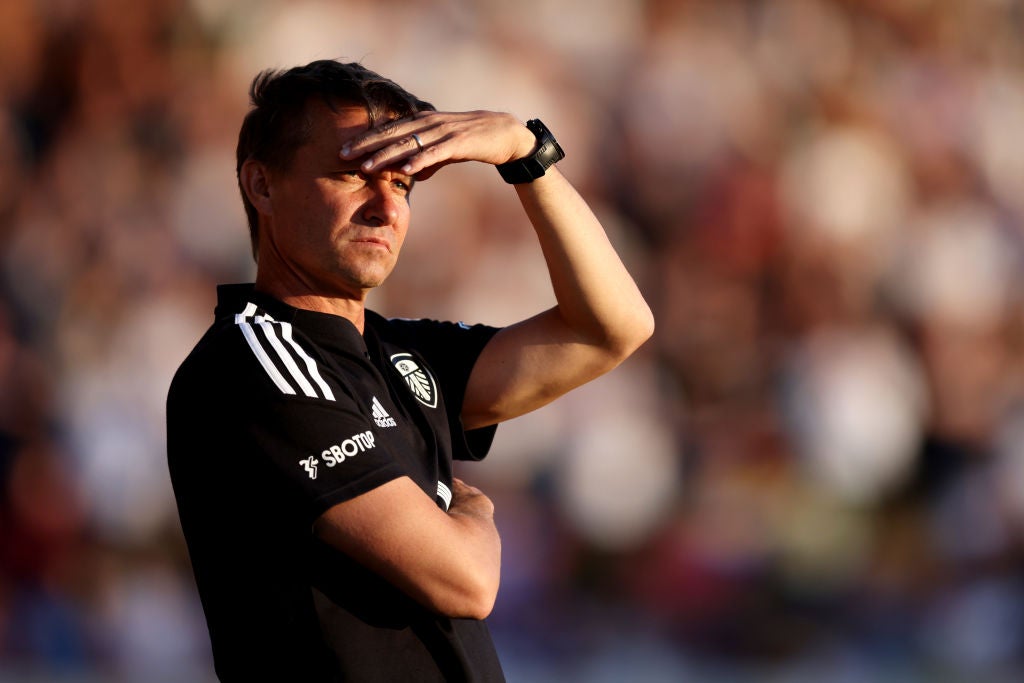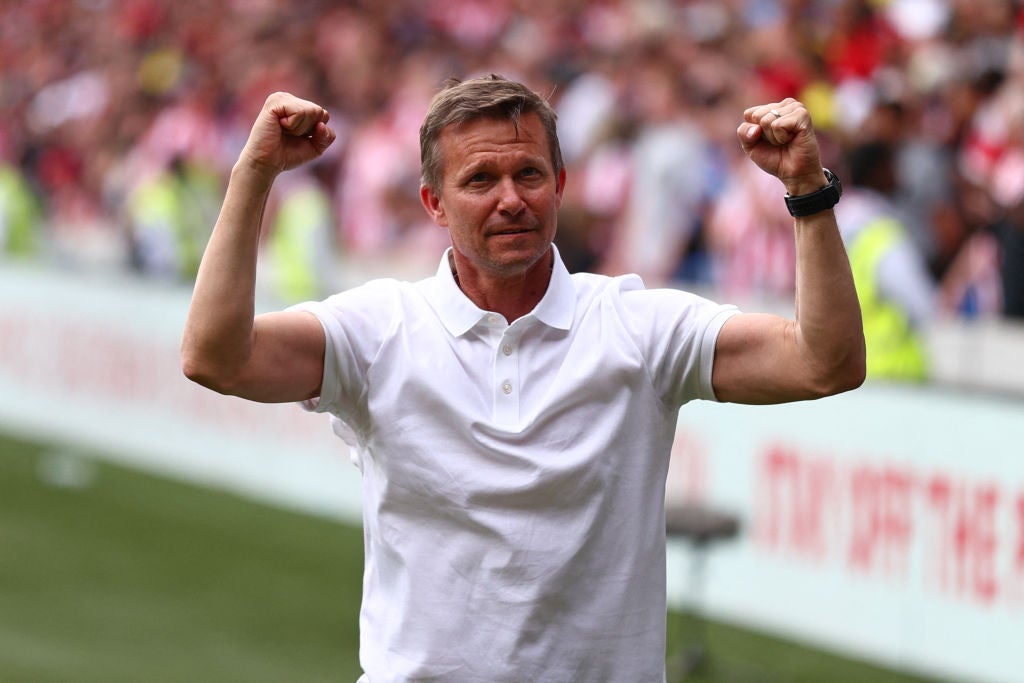Leeds go all in on Jesse Marsch as revolution of reunions takes shape
The American coach has gone back to his old clubs as Leeds face up to the key departures of Kalvin Phillips and Raphinha

Jesse Marsch’s father worked on the assembly line of a Wisconsin tractor factory for 32 years. A younger Marsch is doing a different kind of building this summer. If Leeds represented an uneasy compromise at the end of last season, with players moulded by Marcelo Bielsa managed by someone who was not the idiosyncratic Argentinian, now they look like fielding the sides of Marsch. He is constructing a new team.
He is shaping up as Leeds’ American revolutionary; partly by choice and partly by circumstances. The sale of Kalvin Phillips and the imminent exit of Raphinha will strip them of their two best players, a £100 million pair whose quality equips them to play for Champions League clubs while, without the Brazilian’s goals, Leeds would probably be a Championship outfit.
If that has created the funds for a radical makeover, it renders it all the more important that Leeds show a sure touch in strengthening. There is the stamp of Marsch on the recruitment drive: Brenden Aaronson and Rasmus Kristensen played for him at RB Salzburg, Tyler Adams at New York Red Bulls and RB Leipzig. Some £60 million in transfer fees have been committed to engineering reunions. Another target, Mohamed Camara was part of his team in Austria; perhaps not since the Von Trapps has there been such an exodus from Salzburg.
To use an Americanism, Leeds have gone all in on Marsch. Director of football Victor Orta long thought of him as Bielsa’s successor; he identified Marsch when at Salzburg and then, presumably, scouted many of his players in Austria and if Aaronson could have joined in January perhaps that was with a next manager in mind. Marsch had been asked if he would join even if Leeds were demoted, came into a relegation battle and pledged to stay if they had gone down – and if that might not have been popular with supporters – there were hints of long-term planning amid a short-term task of staying up.
He forms a contrast with his predecessor. Bielsa could take little interest in transfers. He had occasional obsessions, like Dan James, but was often content to work with the players he had and Orta was the driving force behind some deals. Bielsa became indelibly associated more with players he inherited than targeted or, in cases like Patrick Bamford, were bought from Middlesbrough, rather then one of his old clubs. Marsch, meanwhile, first met Adams at 15 and gave him his senior debut.
Marsch may not have chosen the speed of change but it feels swift. Leeds’ first-choice side next season could feature perhaps five new signings – Kristensen at right-back, Aaronson, Adams and Marc Rosa in various midfield roles, the likely arrival Luis Sinisterra on one wing – perhaps in Marsch’s preferred 4-2-2-2 formation or maybe the 4-2-3-1 he used, rather than Bielsa’s 4-1-4-1 or his quixotic alternative, 3-3-1-3. Some of the survivors from the old era may be in different roles: perhaps Jack Harrison will swap flanks to accommodate Sinisterra.

There was an inevitability about deBielsaification. The reality is that some of it was necessary. No one else deploys a man-to-man marking system all over the pitch; as Leeds’ defensive record verged on the disastrous, it became apparent why.
Some of the deBielsaification is a product of misfortune. Luke Ayling, the former League One stalwart who had an outstanding campaign in 2020-21, will miss the start of next season after knee surgery, though Kristensen’s arrival suggests he has been demoted to a back-up. Stuart Dallas, Leeds’ player of the year as they came ninth and an ultra-versatile advertisement for Bielsa’s universality, is a longer-term absentee. Some feels necessitated because players advanced beyond their natural level: Mateusz Klich, a revelation for almost three years and a struggler since, seems to have slipped down the midfield pecking order after the influx of imports.
No one improved quite as much as Phillips; Bielsa inherited a box-to-box midfielder for a lower-half second tier club and turned him into a defensive midfielder who started the Euro 2020 final. Now he has been bought by the high priest of midfielders, Pep Guardiola. Raphinha, arguably, was never a quintessential Bielsa player as much as an extreme talent, somehow lured to a promoted outfit for a bargain price.
Perhaps, as tends to be the case when clubs sell players who have outgrown them, there has to be a collective capacity to compensate, rather than relying on any one individual. Sinisterra scored 23 times for Feyenoord last season but his 12 goals in the Eredivisie feel a lesser return than Raphinha’s 11 in the Premier League. Phillips tended to be a lone defensive midfielder for Bielsa. Marsch prefers to select two.
If at times the Bielsa era felt a brilliant mirage, something so distinctive much of it would disappear with his departure, now Leeds are looking very different, with more influences from America and Austria than Argentina and England’s second tier. Marsch started last season with RB Leipzig. Now he may be in charge of RB Leeds.
Join our commenting forum
Join thought-provoking conversations, follow other Independent readers and see their replies
Comments
Bookmark popover
Removed from bookmarks